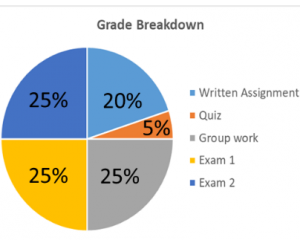Ethics in Research, IRB and IACUC (FSHN 580)
(3 credits)
Course Description and objectives:
The goals of this course are twofold. First, to provide graduate students with an introduction to knowledge and skills that will facilitate ethical behavior in research. Second, to increase their sensitivity to ethical issues. We will review rules, issues, options and resources to meet regulatory and institutional expectations (including Institutional Review Board (IRB) and Ins titutional Animal Care and Use Committee (IACUC). We will foster their ethical decision-making skills by discussing and analyzing real (or realistic) ethical cases. We will identify failures, justify decisions, and generate potential solutions to those errors.
titutional Animal Care and Use Committee (IACUC). We will foster their ethical decision-making skills by discussing and analyzing real (or realistic) ethical cases. We will identify failures, justify decisions, and generate potential solutions to those errors.
By successful completion of this course, you should be able to:
- Identify and demonstrate understanding of the key codes, principles, and regulations on the ethical conduct of research.
- Analyze ethic cases, evaluate application of codes, principles and regulations, and justify decisions.
- Have a positive disposition toward research ethics.
Class meets Tuesday & Thursday 2:00-3:20 pm; Bevier Hall Room #328 (or via zoom)
Office hours by appointment
Course requirement:
- Net ID and AD password to access an Illinois Compass 2g website for the course: https://compass2g.illinois.edu
- Textbook: “Ethics in mental health research: principles, guidance, and cases”. James DuBois. New York: Oxford University Press, 2008.
- Additional reading material and link to videos will be posted in the website for the course.

Written assignments: You will be asked to provide a one page written opinion piece weekly (deadline Friday 5:00 pm). This will be used to evaluate your understanding of the material covered that week. Written pieces will contribute to 20% of final grade.
Quiz: Please read all assigned readings before they are covered in class. You will participate of interactive quizzes during class. Your responses to these quizzes will contribute to 5% of final grade.
Group work: Students will be divided in small groups to discuss and reflect on ethical cases once a week. You will be asked to actively participate by analyzing the case, elaborating arguments for discussion within the smaller group, and to present to the bigger group (25% of your final grade).
Exam: You will be given one written midterm exam and a second written exam at the end of the semester (25% of final grade each).
Grading: Your final course grade will be determined based on how many points you earned out of the total: A range=> 90%; B range= 80-89%; C range =70-79%; D range =60-69%; F =<59%.
NOTE: Students with special needs should notify the instructor during the first week of class, so adjustments can be made early in the semester. Disability Accommodations: Efforts will be made to accommodate students with disabilities. All requests for reasonable accommodations should be directed to the Disability Resources and Educational Services (DRES) Student Services Office (via phone: 217-333-1970; email: disability@illinois.edu; or website: www.disability.illinois.edu/).
University Policy on Academic Integrity: The University of Illinois at Urbana-Champaign Student Code should also be considered as a part of this syllabus. Students should pay particular attention to Article 1, Part 4: Academic Integrity. Read the Code at the following URL: http://studentcode.illinois.edu/ .
Academic dishonesty may result in a failing grade. Every student is expected to review and abide by the Academic Integrity Policy: http://studentcode.illinois.edu/. Ignorance is not an excuse for any academic dishonesty. It is your responsibility to read this policy to avoid any misunderstanding. Do not hesitate to ask the instructor(s) if you are ever in doubt about what constitutes plagiarism, cheating, or any other breach of academic integrity.
Students with Disabilities : To obtain disability-related academic adjustments and/or auxiliary aids, students with disabilities must contact the course instructor and the as soon as possible. To insure that disability-related concerns are properly addressed from the beginning, students with disabilities who require assistance to participate in this class should contact Disability Resources and Educational Services (DRES) and see the instructor as soon as possible. If you need accommodations for any sort of disability, please speak to me after class, or make an appointment to see me, or see me during my office hours. DRES provides students with academic accommodations, access, and support services. To contact DRES you may visit 1207 S. Oak St., Champaign, call 333-4603 (V/TDD), or e-mail a message to disability@uiuc.edu. http://www.disability.illinois.edu/.
Emergency Response Recommendations: Emergency response recommendations can be found at the following website: http://police.illinois.edu/emergency-preparedness/. I encourage you to review this website and the campus building floor plans website within the first 10 days of class. http://police.illinois.edu/emergency-preparedness/building-emergency-action-plans/.
Family Educational Rights and Privacy Act (FERPA): Any student who has suppressed their directory information pursuant to Family Educational Rights and Privacy Act (FERPA) should self-identify to the instructor to ensure protection of the privacy of their attendance in this course. See http://registrar.illinois.edu/ferpa for more information on FERPA.
